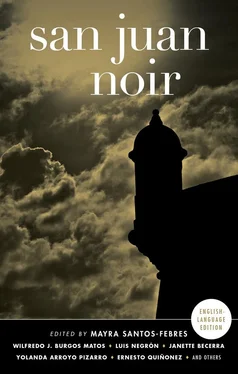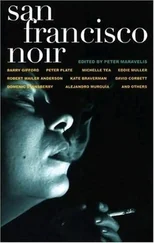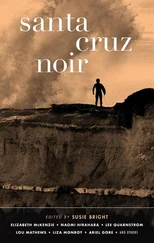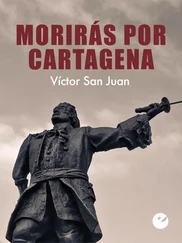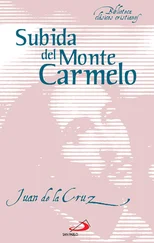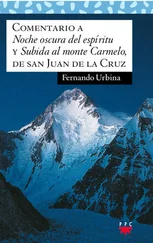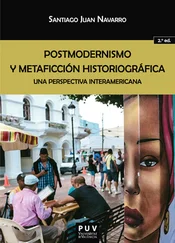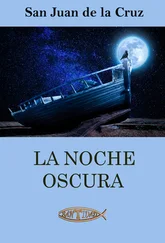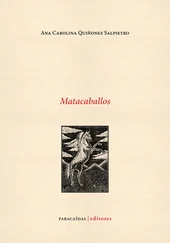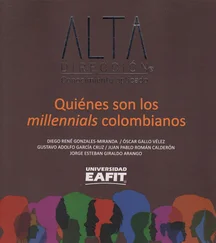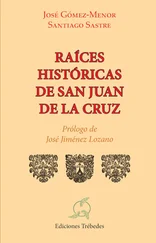Ernesto Quiñonez - San Juan Noir
Здесь есть возможность читать онлайн «Ernesto Quiñonez - San Juan Noir» весь текст электронной книги совершенно бесплатно (целиком полную версию без сокращений). В некоторых случаях можно слушать аудио, скачать через торрент в формате fb2 и присутствует краткое содержание. Город: New York, Год выпуска: 2016, ISBN: 2016, Издательство: Akashic Books, Жанр: Детектив, на английском языке. Описание произведения, (предисловие) а так же отзывы посетителей доступны на портале библиотеки ЛибКат.
- Название:San Juan Noir
- Автор:
- Издательство:Akashic Books
- Жанр:
- Год:2016
- Город:New York
- ISBN:978-1-61775-296-4
- Рейтинг книги:3 / 5. Голосов: 1
-
Избранное:Добавить в избранное
- Отзывы:
-
Ваша оценка:
- 60
- 1
- 2
- 3
- 4
- 5
San Juan Noir: краткое содержание, описание и аннотация
Предлагаем к чтению аннотацию, описание, краткое содержание или предисловие (зависит от того, что написал сам автор книги «San Juan Noir»). Если вы не нашли необходимую информацию о книге — напишите в комментариях, мы постараемся отыскать её.
San Juan Noir — читать онлайн бесплатно полную книгу (весь текст) целиком
Ниже представлен текст книги, разбитый по страницам. Система сохранения места последней прочитанной страницы, позволяет с удобством читать онлайн бесплатно книгу «San Juan Noir», без необходимости каждый раз заново искать на чём Вы остановились. Поставьте закладку, и сможете в любой момент перейти на страницу, на которой закончили чтение.
Интервал:
Закладка:
I rolled him his first joint one Palm Sunday, when we were about to finish high school. He got hooked on weed and almost failed the semester. Well, to be honest, he didn’t pass: the teachers came to an agreement and inflated his grades to get him out of there. And that’s what he did — he hitched up his gown, walked at graduation, and the next week he joined the National Guard Reserve. He came back from Fort Jackson off his rocker, jacked, his biceps bursting out of his T-shirt, hell-bent on banging all the girls. As soon as he could, he got himself a motorbike, a brand-new Yamaha RX, which he crashed into a wall at Parada 26 coming out of a Palma Party rally. Even in this respect we were different. His family was blue, true blue, and mine was red to the core. We barely ever talked politics, preferring to avoid unnecessary disputes. Things like that sow discord where there is none. I knew that a flag of the ex-governor hung from his window, and that was more than enough.
We grew apart while I was at university, but we still saw each other every now and then. We bumped into each other at Boricua or Ocho de Blanco, dives we went to on the hunt: hair slicked back à la John Travolta, starched and unbuttoned guayaberas, faded blue jeans, riding boots shined to perfection. That was when he started getting into cocaine. He came out of the bathrooms with dilated pupils and a numb jaw, euphoric. He avoided me under these circumstances, ashamed, even though he knew drugs weren’t foreign to me and that I’d tried everything — even LSD and hashish, of which I was an aficionado for a time. I found out from other friends, randomly, that he was getting heavily into smack. “He’s turning into a junkie,” they said. Alone, I cried, I admit it. Nobody returns from that trip intact: they want to come back, get back to the shore, save themselves from the tide that’s sucking them out. They fail. A dense jungle, darkness, live ash, snake-bitten shadows, hunting, inexorable. Only the grave frees them from that prison. When I graduated, just scraping by, with a degree in accounting, and with the strike calming down at the university, I lost sight of him. What I mean to say is I stopped seeing him, although not so much his doubles, that multitude of creatures wandering along the avenues and sidewalks: the plastic cup in their ulcerated hands, their breath broken with thirst, happiness fading from their expressions, slow and without rhythm.
And one day around Callejón del Gámbaro, I ran into him when I was coming out of work. He looked stooped, older. He asked for a peso, making it sound like a joke, and I invited him to get a beer. We went into one of those bars on San Sebastián and settled in at the counter, which was covered with candles and ashtrays. He drank calmly, serenely, detached from what was going on behind him at the restaurant tables. He held the bottle with a napkin, and when he brought it to his mouth, foam sliding out the corners, his expression was transfigured. I had the impression that the alcohol ran swiftly through his veins, one by one healing all his wounds. We talked for hours without stopping, laughing loudly. It was very late when we drunkenly said goodbye and I gave him twenty dollars. I heard he got by as a handyman, fixing plumbing and household appliances, but it’s possible that he was already involved in other business. Maintaining a vice costs you a nut. Sometimes both.
He disappeared completely around Christmas. The radio played “La Finquita,” the hit by Tavín Pumarejo, and also a song by Tony Croato that depressed me: the story of a kid with torn shorts, barefoot and freezing. Repollo didn’t leave a trace. Someone told me it was rumored that he’d screwed someone over and taken off. I believed it, so he was either dead or on the run — six feet under, wrapped in a Glad bag, or in an apartment on the Lower East Side, sleeping on a cot, dressed like a janitor. One night, in the middle of a City Council meeting, my doubts were eliminated. Doña Cambucha, the spinster of San Justo, accused him of robbing the rearview mirrors from cars. Can, the girl from Tetuán, seconded the complaint, adjusting her cleavage: “He took the hubcaps off my Nissan, the crook.”
I knew right away that his hours were numbered. I searched high and low to find him.
“You’re heating up,” I warned him.
He smiled, showing his teeth, indifferent, and took a wooden top out of his pocket. He wound the string around the tip, tightening it with his thumb, and threw it onto the ground. That slow dance across the stones entranced us; we were captured by its spinning, tied to its movement; the lost murmur of our innocence, the sounds of the waves crashing against the rocks on the coast, our broken dreams. Immobilized on the benches of the dock, sheltered by a tree, we scrutinized the horizon, the wind shaking the bushes. Hiding my anxiety, I tried to find cracks in his face, signals that would help me guess what was convulsing inside him. I found no answer, just a sad question in his gaze.
“Keep it,” he chided, “see if you can learn how to use it.”
He headed for Covadonga, prowled around the area, and his pilgrimage ended around the bus station, slouched on a sidewalk, watching the flow of passersby.
Word got around among the neighborhood residents that he’d already been given a warning: “Pickpockets have to go to Condado.” It was the logical move. Robberies attract the police, inconvenience the residents, create a climate of suspicion and rancor, and, in the end, damage the drug trade. The important thing is to guarantee the normal flow of goods and services. The recipe is simple: if something alters the social harmony, it’s eliminated. So a good capo, apart from being invisible and feared by his peers, insures that there’s order. He intimidates thieves, gives the belt to abusers, compensates widows, takes care of appearances, and administers justice. In a sentence: he imposes his law, with an Uzi SMG hanging from his shoulder. There’s no other way for the gang to gain ground. I once heard a taxi driver near Tapia say that we need fewer governors and more gangsters.
Life continued on its way. I forgot about the thing with Repollo. My work routine imposed itself against my will. Getting up at six to avoid traffic. Tying my tie, driving to the office. Punching in before eight, taking a break at ten. Eating lunch, filling out forms, attending meetings. Drinking coffee, smoking, snacking on donuts. Monday to Friday: the automation reflected on the computer screen. I was waiting for the bell, and my existence turned into a silent movie.
One day, near the end of my Semana Santa vacation, I was heading up to Hooters when I noticed a crowd gathering around one of the watchtowers, including some police officers and reporters. A soft breeze blew, dragging in an intense, salty odor. I went over to see what was going on, removing my hat, and from a distance I made out the sailboat retrieving a solitary swollen arm, floating out to sea, chewed on by fish.
“It must be from a Dominican,” someone speculated.
I moved away silently, heartbeats pounding in my chest, sweat running down my thighs. My soul made a junkyard of words, convinced they were wrong. The robberies in the area had stopped, and I hadn’t seen him standing on the corner of Ballajá lately, absently peering out of the graveyard. I went out and looked for him everywhere, I must confess, aware of his fate and of the futility of my effort, the top he’d given me clenched in my fist, dancing inside me, inaudible. It’s hard to know what his last minutes were like. He was impulsive and antisocial. Brave with little effort. I just hope that they killed him before cutting off his limbs, to spare him the pain. But hired thugs tend to be sadistic, and they have their methods. There’s no way to know.
Читать дальшеИнтервал:
Закладка:
Похожие книги на «San Juan Noir»
Представляем Вашему вниманию похожие книги на «San Juan Noir» списком для выбора. Мы отобрали схожую по названию и смыслу литературу в надежде предоставить читателям больше вариантов отыскать новые, интересные, ещё непрочитанные произведения.
Обсуждение, отзывы о книге «San Juan Noir» и просто собственные мнения читателей. Оставьте ваши комментарии, напишите, что Вы думаете о произведении, его смысле или главных героях. Укажите что конкретно понравилось, а что нет, и почему Вы так считаете.
